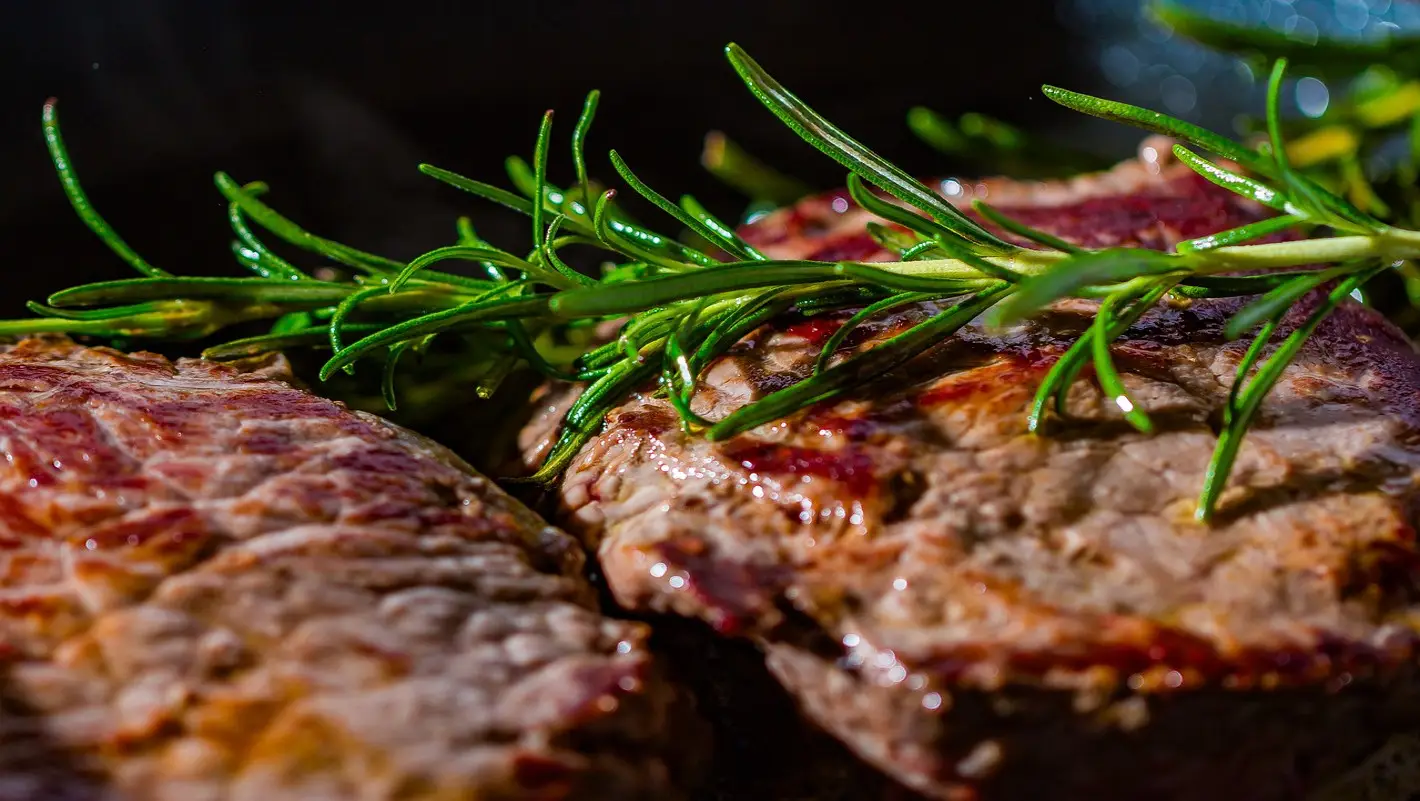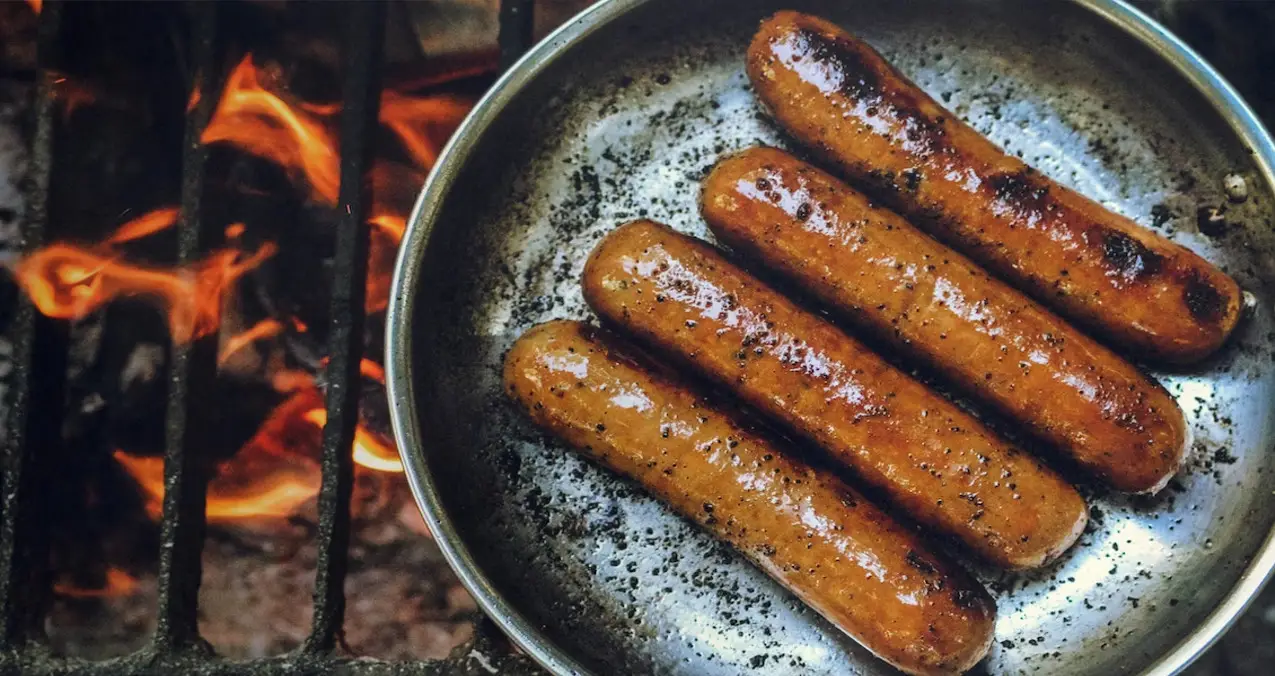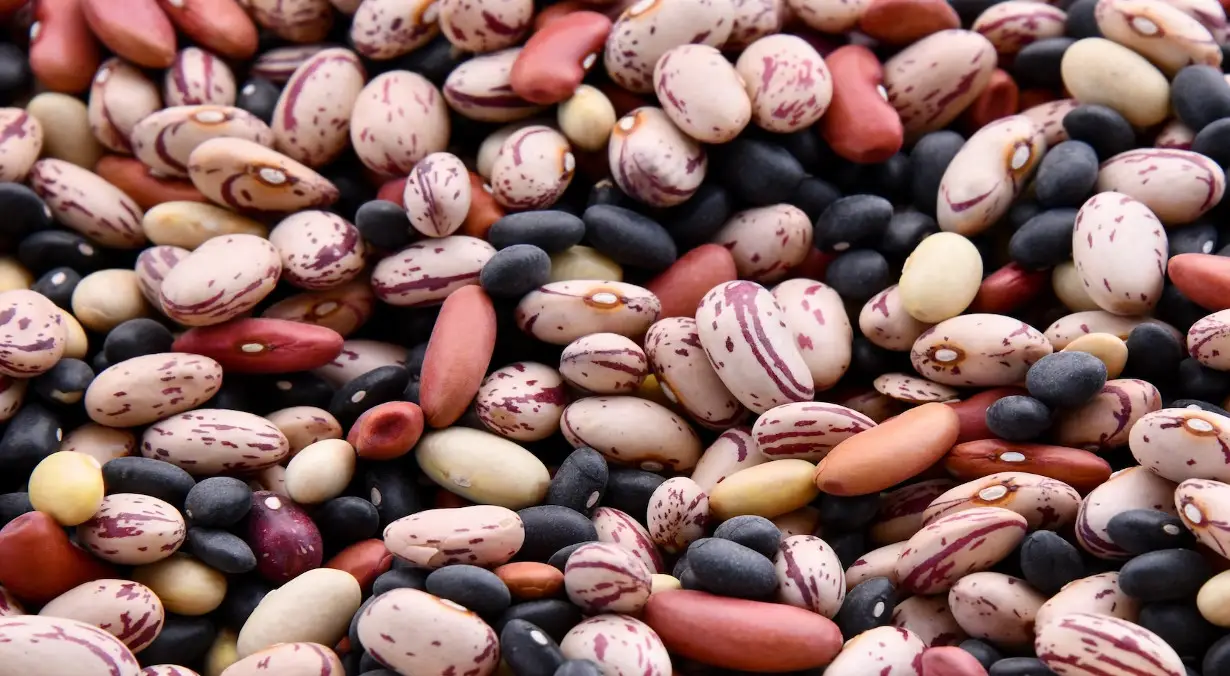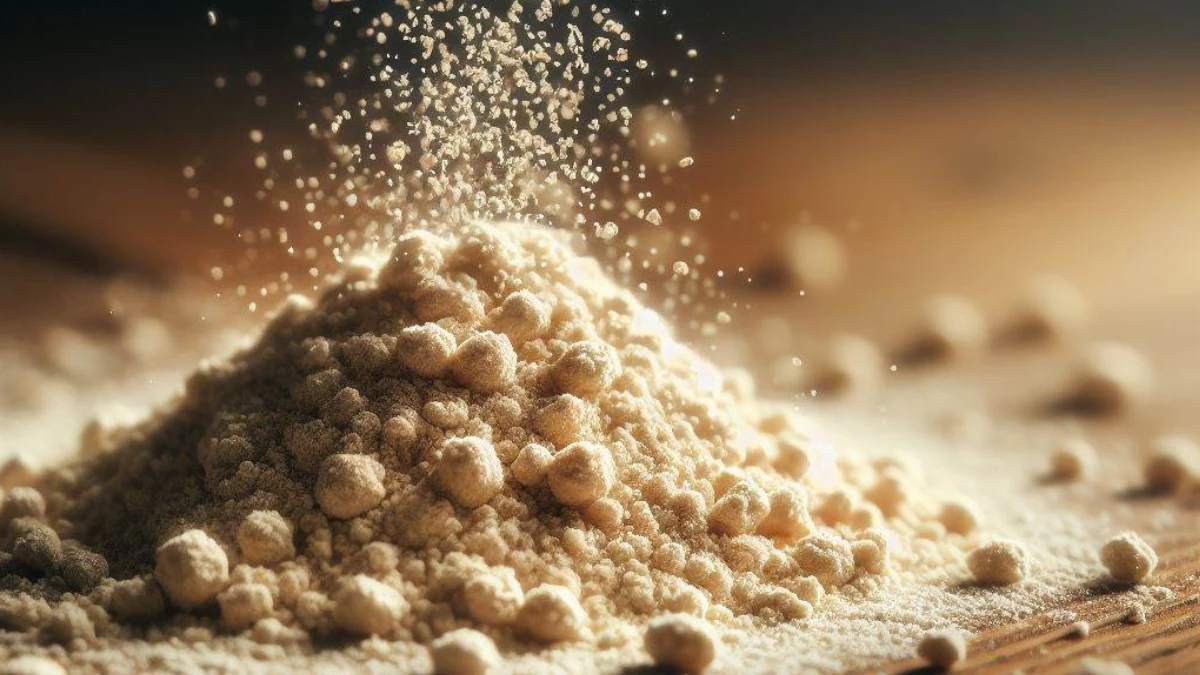Beef T-Bone Steak Lysine and Arginine Info Sheet
Overview
Beef T-bone steak is a tender and flavorful cut of beef that comes from the short loin of the cow.It has a T-shaped bone that separates the tenderloin and the strip steak. It is often grilled, broiled, or pan-fried.
Beef T-bone steak is a high-quality, high-price, and high-fat food.
It can provide protein, iron, zinc, and vitamin B12. It can help with muscle growth, blood health, and immune function.
However, it also contains cholesterol and saturated fat, which may increase the risk of heart disease and stroke.
| Name | Lysine (mg/100g) | Arginine (mg/100g) | Ratio |
|---|---|---|---|
| Beef T-Bone Steak | 1394.27mg | 1059.47mg | 1.316 |
Beef T-Bone Steak contains 1394.27mg of Lysine and 1059.47mg of Arginine per 100g of product.
This means Beef T-Bone Steak has a high Lysine-Arginine ratio of 1.316.
Because Beef T-Bone Steak contains slightly more lysine than arginine, increasing its consumption may benefit people who suffer from herpes, as it may boost the immune system.
Lysine Considerations
Lysine is an essential amino acid that helps build muscle, produce hormones, and support the immune system.
Beef T-bone steak provides about 202% of the recommended daily intake of lysine for an adult.
Lysine has the potential to prevent or treat cold sores, which are blisters caused by the HSV-1 virus, also known as herpes.
Lysine operates by working against the proliferation of HSV-1, which relies on another amino acid, arginine, to reproduce and infect cells.
Lysine can only be acquired through our diet, and is present in multiple high-protein foods such as eggs, milk, cheese and yogurt, fish, meat and poultry.
Arginine Considerations
Arginine is a semi-essential amino acid that helps produce nitric oxide, a molecule that relaxes blood vessels and improves blood flow.
Beef T-bone steak provides about 153% of the recommended daily intake of arginine for an adult.
Arginine has different benefits for our health and performance, such as lowering blood pressure, enhancing wound healing, and increasing exercise endurance.
Arginine can also affect the herpes virus, which causes cold sores and genital herpes.
Studies suggest that arginine may help the virus grow and cause outbreaks, so people with herpes may want to avoid foods that are high in arginine or take lysine supplements to block its effects.
Lysine-Arginine Ratio
The lysine-arginine ratio is a measure of the balance between these two amino acids in a food.
A higher ratio means more lysine than arginine, which may be beneficial for preventing or treating viral infections, such as herpes simplex.
Beef T-bone steak has a lysine-arginine ratio of 1.316, which is higher than the average ratio of 1.0 for most foods.
Both lysine and arginine are essential for protein synthesis and various other bodily functions.
They, however, have opposing effects on the herpes simplex virus, which causes cold sores and genital herpes.
Lysine can prevent the replication of the virus, whereas arginine can stimulate it.
Thus, a diet rich in foods with a high lysine to arginine ratio may help reduce the occurrence and severity of herpes flare ups.
Foods that have a high lysine-arginine ratio include milk and cheese products, fish, poultry, fruits, and vegetables.
These foods can provide the body with enough lysine to compete with arginine and inhibit the virus from replicating and causing flare ups.
Dietary Considerations
Red meats are a good source of protein and lysine, but they also contain more fat and cholesterol than poultry or fish.
Red meats can help prevent or treat herpes outbreaks, as lysine can block the activity of arginine.
Red meats also contain zinc, iron, and vitamin B12, which are essential for immune function and nerve health.
Beef and pork are some of the red meats that have more lysine than arginine, with almost as much as poultry.
Despite this, red meats should be consumed in moderation, as they can increase the risk of cardiovascular diseases and some cancers.
Intriguingly, bovine herpesvirus 1 is a form of herpes that cows can contract.
This virus, however, is species-specific and does not affect humans.
This means that you can enjoy beef (or any other type of meat) without any apprehensions about catching herpes.

For example:
Eating a balanced and nutritious diet that supports your immune system and reduces inflammation.
This means consuming plenty of fruits, vegetables, whole grains, lean protein, and healthy fats, and avoiding processed foods, added sugars, alcohol, and caffeine.
Make sure to drink plenty of water to keep yourself hydrated and eliminate toxins from your body.
Water can also help you avoid dryness and irritation of the skin and mucous membranes, which can lead to outbreaks.
L-lysine supplementscan help you prevent herpes outbreaks and stop a cold sore before it develops by depriving the virus of arginine, which it needs to form a cold sore.
Other food supplements, such as vitamin C, zinc, selenium, and antioxidants, can help you boost your immunity and protect your cells from oxidative stress.
To prevent outbreaks, avoid foods that can cause allergic reactions or sensitivities, such as gluten, dairy, nuts, eggs, or shellfish.
These foods can harm your immune system and make inflammation worse.
Foods that can boost your immunity and fight inflammation are essential to prevent outbreaks.
Honey, yogurt, aloe vera, and chamomile are some examples of these foods.
They can also soothe your symptoms and help you recover quicker by reducing pain, swelling, and itching.
Check more food information






